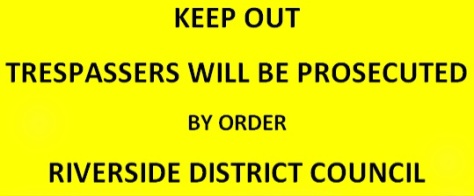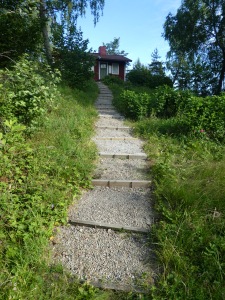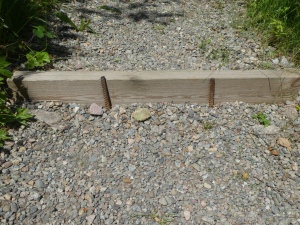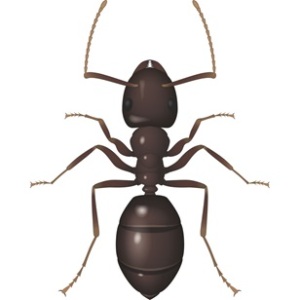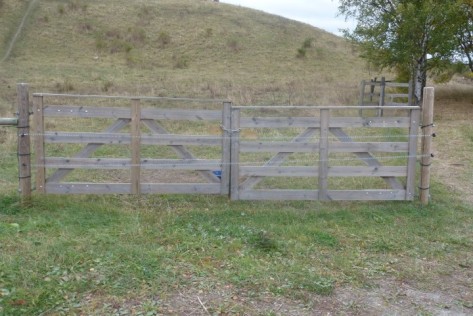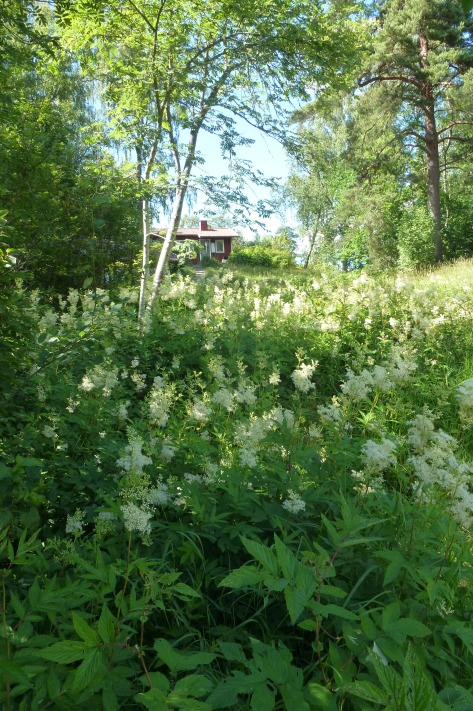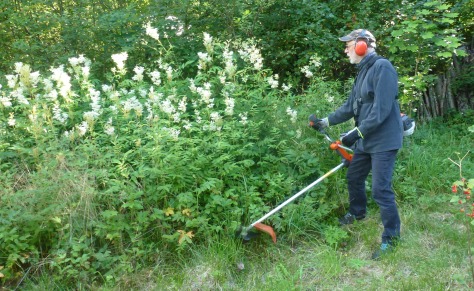The phone rang too early and too loud for a Saturday morning in May. A voice rough as gravel asked “Wanna’ job?” It was Charlie. “Lump of bread in it for ye’. Take a day.” He hung up without waiting for an answer. He knew I was seriously short of readies. His wheels would be out front in five. A quick cough, a pee and dragged my gear on. He drove up in a cloud of dust as I opened the door, just slowing down enough for me to jump on the footstep. It was an old bread delivery lorry, logo still showing through a thin coat of white paint.
“Four in it for yer if we get it done today” was all he said. I coughed, “Where?” “Bellhouse Road, three up, three down, old biddy left the table. Cleaners comin’ tomorrow. Easy money.” “You think?” I said, sceptical before I’d seen the place, “them oldies can stack it away.” “Remember that dump in Peelhouse Lane? Would’ve been better to torch it all”, said Charlie, laughing.
“Didn’t expect to see you in the driving seat today, Charlie,” I said after a pause. “Ah, nothing special today, just a bit short of hands” said Charlie, not very convincingly. He had a contract to clear out abandoned houses after evictions or squatters. Anything saleable was supposed to go a charity shop nearby, but Charlie had an associate with a large warehouse. The rest we binned or dumped. No recycling, unless it was something we wanted ourselves. It was cash in hand and the agent turned a blind eye if we got the house emptied quickly. These places were never gold mines, so the van was usually light when we finished up.
Known Charlie for a couple of years, since my stretch in Liverpool. A bad one, but us Irish lads stuck together. Spent time inside reading, passed the hours away and kept me out of trouble. They called me Prof, and it stuck. Charlie knew my Dad and the Bradys from back home. He looked out for me when I got out so I owed him, couldn’t say no. He was the local fixer, bigger than most with large, deep blue eyes, a bush of ginger hair and a few days growth on his chin. Tattoos on his arms told of army service somewhere, but you just didn’t ask Charlie. He kept it close.
I bumped into him late one night outside the Black Cat, a basement gym and billiard joint on a dark street down by the docks. The brute on the door said firmly “No” when I tried to get in. “Seriously, I need some stuff” I said, but he grunted “Wait!” To pass the time I leaned against the wall and took out a book. A while later this large figure stepped out of the dark. When Charlie saw me he burst out laughing; “What you reading Professor? Don’t yer know what this place is?” Feeling it would be unwise to say, I slipped the book in my back pocket and gave him a little grin. He came closer and clamped his fist around my biceps like a huge claw. “Not much here. You need to work on that body o’ yours. Tomorrow night, here, ask for Charlie. Right!” I shuffled my feet nervously and mumbled “OK” as he nodded at the door and slipped inside.
Charlie took me on, set up a daily training programme. I don’t know why. Maybe he smelt the Irish blood, or p’raps it was a way of keeping me out of trouble. He always called me “Prof”, said I was the only person he knew who read books.
The Black Cat was a spooky place. The heavy metal guys were big silent types, pumped up with handfulls of coloured pills. Only sound was the clang of weights and whine of cables as the machines toiled away, and an occasional thud when someone dropped their iron on the floor. A muffled click of billiard balls was the only background music. The tang of liniment and sweat dominated the space under the low ceiling. A few ancient strip lights spread a greenish light, hardly strong enough for you to avoid stepping in the pools of sweat on the concrete floor.
I trained every night. Brute opened the door as soon as he saw me – I was Charlie’s boy now. Nobody spoke to me, except Charlie if he paid a call. He pretended to check out my biceps, said a few words of encouragement, then off again. Staring at members was not appreciated, I kept myself to myself. Nothing was said, but the occasional raised eyebrow, a wink or a nod and they shuffled away to the discrete back office behind the billiard tables.
This was where I got to know Charlie, and gradually put on enough muscle to be useful to him. Now he trusted me for smaller contract jobs. The trust was not mutual, but the pay was all right if you did as you were told.
We pulled up outside 26 Bellhouse Road. Quiet street, mostly red brick Victorian terraced houses, a few cheap cars parked on the street, Asian store on the corner. Number 26 was a semi, small paved garden out front with low brick wall and sparse privet hedge that had seen better days. Weeds stuck up between the flagstones, vying for space with the piles of litter which filled the garden. Green paint was peeling from the window frames and front door. It looked deserted, a sorry sight.
“Who lived here?” I asked, but Charlie had already unlocked the door and was on his way in. I heard him take the stairs two at a time, probably opening all the windows to air the smell out. I unloaded the van: rolls of bin bags, cable ties, empty boxes, pile of old blankets, metal ladder, shovels, gloves, masks and of course our old music box.
I followed him into the house, recognising the familiar layout of a Victorian semi. Charlie had left footprints on the pile of brochures, flysheets and envelopes splayed on the floor inside the front door. I picked up one envelope. It was addressed to a Miss R. Kelly, the deceased, from the electricity company. Woman dies but her life just goes on. I picked up the lot and dumped them behind the dusty old telephone on the narrow hall table. I heard later that the old lady had died alone, with no relatives and a budget funeral paid for by the local church; anonymous ashes scattered in a garden of remembrance for those who no one remembers. Name plaque not included.
We always took the kitchen first. Sometimes the smell was so bad we had to wear masks, with food left in the ‘fridge, and the electricity cut off. At Miss Kelly’s the odour wasn’t too bad in the hallway, but got worse as I slowly approached the kitchen door at the end of the corridor. The pattering of tiny feet told me it was a good idea to fetch a heavy shovel, useful to chase out the rats. I used it to bang a couple of times before fully opening the door. Rats had been having a party. I pinched my nose and ran to fling open the kitchen windows, and then the back door, which was bolted but not locked.
“What’s it like” shouted Charlie from upstairs. “Bit of a mess, rats. Haven’t open’d fridge yet” I answered. “Check other rooms down there first then,” said Charlie with his no-nonsense voice. “Ok”, I shouted back.
Did as I was told, but a strange feeling said that Charlie didn’t want me going upstairs. Usually we had a good look round for any bonuses before getting down to the dirty work. Perhaps he had found something he wanted to keep close. He’s the boss, so I got on with the living room.
Green three-piece suite facing mid-way between the fireplace and the old TV, heavy oak sideboard, coffee table, small cupboard with glass doors and shelves full of knick-knacks at one end, oak dining table and three chairs by the window. Couple of rugs, framed views of Ireland on the walls, heavy maroon velvet curtains hiding short greying lace ones, a standard lamp. Ina the bottom drawer the best cutlery, full set still in leather presentation box lined with green baize, silver plated with imitation ivory handles. Probably never used, saved for a special occasion that never came.
“Charlie”, I shouted from the bottom of the stairs, “get on wi’ moving out ‘living room shall I? Sideboard and settee ‘ll ‘ave to be lifted:” A muffled reply from Charlie: “Take the small stuff first. Need ‘ladder up here after.” “OK”. So, he was going up in the attic.
It took me almost an hour to get the living room empty, bar the heavies. The drawers and cupboards on the sideboard needed emptying, to get the weight down. Usually there was never anything interesting there, so it was straight into bin bags. I just salvaged a drawer of worn cutlery, but tablecloths and napkins went right out. One drawer was full of old bills and papers – gas, water, pension, taxes, savings bank. All binned except for a few hand-addressed letters which I saved in a pile. Don’t know why really, just curious. Who would be writing to the old biddy? Two cupboards full of old newspapers, magazines, knitting patterns. Nothing worth saving.
Right at the back there was an old shoe box, yellow with age. It almost fell to pieces when I lifted the lid. Inside it was packed with letters still in their envelopes, all addressed to Miss R. Kelly, 26 Bellhouse Road. Most had Irish stamps. From the postmarks I noticed that the letters were from the 1970’s and 1980’s, posted in Newland. Brady country both sides of the border. We lived there before moving to Liverpool. Some Bradys still lived here; Dad’s sister and a bunch of cousins.
Tried talking to Dad about those times but he just clammed up: “Long time ago, bad times” was what he usually said when I asked. Finding the old letters from that time raised my heart beat a little. A picture postcard fell out from between the letters. It was dog-eared, handled many times. The picture was of the shore near Newland, below the Mourne Mountains. I’d been there with Dad when we visited the Bradys. Turned it over and read:
“Dear Auntie Rachel
Early on Sunday we took the bus from Omeath along the coast. We planned a walk in the mountains. It was misty and drizzling, so we couldn’t see the peaks. The sun came out at around three o’clock and we had our picnic, then took the bus home. Plan to go back next Saturday.
Love
Mary & Ciaran”
Who’s Mary and Ciaran? A sudden shout “Up with that ladder now lad!” made me drop the box. The letters spilled over the floor. Collecting them quickly I stuffed the letters into a sack and shoved it into the cupboard under the stairs, planning to read them later. The doorknob came off in my hand, so I pushed the door to with my shoulder and stuffed the knob in my pocket. “All right, on my way!”
The extending metal ladder was loot from a previous house job. Came in handy for climbing into attics, or through windows if keys were missing. Heaved it up the stairs to Charlie, who was standing below the open trapdoor. There was no light up there, just a black square in the ceiling. “You can get on with the kitchen before ye’ break” said Charlie, trying to make it sound less like an order. He meant, stay downstairs and get on with the job. Otherwise, mind your own business. “Pub on ‘corner should do when I’ve got that ‘fridge cleared”, I said. “Just bag it all, nothing there to keep” said Charlie and turned away, propping the ladder up to the dark opening.
Made my way back to the kitchen, pulling on gloves and mask before opening the bulky ancient fridge. It was dark inside, no electricity on in the house. I tried to drag the fridge round so that the door faced the window, but I couldn’t shift it. It was stuck to the floor, not sure if by accident or design. Couldn’t see what was in there. Used a shovel to scrape out one shelf at a time, straight into a bin bag. Like most old people Miss Kelly was not a big eater, so it was soon done. I sealed the bag quickly and, holding it at arm’s length, threw it into the front garden. Before the day ended the garden would be full of bulging shiny black plastic sacks standing in rows, sealed with white plastic cable ties, looking like a crowd of penguins with bowed heads waiting to dive into the ocean.
Two heavy thuds came from the attic, followed by a scraping sound as if something heavy was being dragged across the floor. Charlie was alone up there, but I knew not to ask what he was up to. Got on with the rest of the kitchen instead. Very little of any value: wonky table with greasy Formica surface, couple of chairs, some pots and pans, kettle, odd utensils. Smell of rats in the cupboards – they had ripped open bags of sugar, flour, packets of dried biscuits, tea bags, so it was a right mess. Four more sacks and the kitchen was done.
Dragging them along the hall into the garden, I heard a motor pulling up outside. Glancing over my shoulder I saw a smallish white van standing next to our lorry. It had green italic writing on the side: “Green Mountain, Painters & Decorators”. Two bulky lads in overalls got out and made for the front door. “Charlie here?” “Up there” I mumbled, and nodded towards the hall. They went inside quickly and hurried up the stairs.
I heard them climb up the creaky ladder into the attic, and then muffled voices. Charlie came down, more friendly than usual. “Good work, lad. Take a break, lunch at yon’ pub. Back in ‘n hour. Here!” He pushed a tenner into my hand, turned and hurried back upstairs.
Didn’t want to know what they were up to. Shovelled in the pub “curry special” quickly, without tasting it. Beads of sweat dotted my forehead, and I could hear the thumping of my heart. Curiosity got the better of me. Made a detour around the block and found an alleyway where I could watch the front door and the painter’s van. After a few minutes a high-pitched scraping sound, metal sliding against metal, came from the stairs and the two beefs came staggering out of the front door. They were carrying a long, green metal packing case. Charlie followed and opened the back doors on the van. Together they slid the case inside, van bouncing up and down on its springs as it took the weight. The driver quickly closed the back doors, gave Charlie a soft punch to the shoulder and with a “see you laddo!” off they drove, van labouring under the heavy load.
Charlie let out a sigh and went back inside. I sneaked back to the pub to fetch his take-away. Glancing up the stairs I noticed that the attic trapdoor was closed. The ladder was still lying along the stairs, like a slide. I just handed over the bag. “Cheers, lad” said Charlie with a look of relief, “remember, you didn’t see anyone here.” I nodded, not too convincingly, but Charlie was already tucking into his curry.
Together we loaded up the sideboard, settee, wardrobes and a few sacks of clothes and linen from the bedrooms. “I’ll be off with this lot” said Charlie, “to ‘warehouse. You’ve got the afternoon to bag the rest.” “Need some torches” I said. “Pitch black in here with no lights.” “I’ll send a couple of the lads to give you a hand. Good work, Prof”, said Charlie climbing into the truck, revving the engine and then disappearing along the road.
Alone, thoughts turned back to the letters. Miss Kelly could have more stuff stashed away somewhere in the house. Bedrooms were the best bet. They had to be cleared anyway so I locked the front door and got to work. No bedroom furniture left, just pile of rubbish from when Charlie had upended drawers and wardrobes. I sorted through the lot as I bagged it: knick knacks, old jars of cosmetics, worn clothes, couple of books. Most people have family photos in frames, dotted around the house. But not here, which was strange. Sadly nothing to save here bar a few old holiday postcards. Finished up by heaving the sacks over the banister rail down into the hall, dragging them into the front garden for the laddos to take in the lorry. They would be here soon.
Locked the front door so I could read the letters in peace, in case the lads were early. Screwed the knob in again and managed to get up the door. It was a narrow cupboard, sloping steeply to the bottom of the stairs. Felt closed in, hadn’t been opened for a while. Unmistakeable smell of mould and damp cellar. There was no light, but the sack of letters was just inside the door. Decided to clear out the rest of the cupboard before looking at the letters. Could just make out a mop and bucket, ancient hoover, pile of carrier bags from the local supermarket and some empty boxes. Dragged all this stuff into the hall. More rubbish for the tip. Got down on my knees to reach the lower end of the cupboard. Something was jammed in there under some old sacks, could be an old tool box. Worked it loose and crawled backwards into the hall, dragging the box behind. Stood up too quickly, eager to see what it was, and banged my head on the door frame. Unwrapped the dirty sacking and found a small brown leather suitcase, battered and covered in dust. It had been under the stairs for a long time. The leather handle was loose, roughly mended with a length of dirty twine. The simple locks were rusty but I managed to lever them up with a knife and they sprung open. A strong smell of mildew filled the hall as I slowly lifted the lid. It was jam packed with papers, letters, notebooks and photographs – some in frames. This was it, Rachel Kelly’s secret hoard.
A loud banging at the front door rudely interrupted my reading plans. I grabbed the case, slammed down the lid and slid it back in the cupboard, together with my sack of letters. Covered them with the old sacking, shouting ”All right, all right, hold your horses!” to cover the sound of the cupboard door closing. Turned the knob quietly, slipped it back into my pocket and ran to open the front door.
“Took your time about it.” It was the two lads Charlie had sent to take the rubbish to the dump. “Resting after all my hard work”, I said, “more or less empty now, just load it up.”
They got to it, stuck in for an hour and then the lorry was loaded. They would have to come back for a second load, but I was done for the day. I closed all the windows, fetched my sack from under the stairs and slid the suitcase inside, locked the front door and climbed into the cab. “What’s that then, loot?” asked the driver. “Bonus” I said, tapping my nose. He shrugged and started the engine. Got out at the end of my road, dragged the sack upstairs and dumped it inside the door. Body aching, feet swollen, grabbed a beer and lay down on the bed.
Woke Sunday afternoon, stiff, still in working clothes, wearing a bad headache. Rolled out of the bed and tripped over the sack and suitcase. Crawled to the window and looked out. Drizzle and grey skies, suited me. Slow shower and a plate of food got me back on my feet.
Didn’t want Charlie or his laddos coming up here. Better to see him at the Black Cat. Emptied the sack, leaving a few old books on the table. Hid the letters and suitcase at the back of the wardrobe. Grabbed my training gear and ran for the bus, slamming the door behind me.
Nodded to the beef on the door: “Charlie in?” “Nope”, he murmured in his usual friendly fashion, letting me pass. Noticed a couple of Charlie’s boys there, didn’t show it, just got on with my own session to loosen up my back and shoulders after all the lifting. One of the lads came up in the changing room: “Charlie’s outside”. Sounded urgent, so I finished dressing and collected my stuff and left. Charlie was sitting in a big black car, lights on and engine purring. As I went over, the window slid down silently into the car door. “Good job yesterday, this is for you”, said Charlie and handed over a tight bundle. Slipped it right into my jeans pocket, not a good idea to start counting there and then. “Took some loot I heard”, said Charlie. “Few old books”. “Good for you Prof, keep you out a’ trouble now the job’s done.” The window closed again with a dull thud and the car floated away.
Charlie’s warning worried me on the bus journey home. Did he know what I had seen at Miss Kelly’s, or was it a warning to keep my mouth shut just in case I had seen something? Could the letters and suitcase get me into trouble? Felt wary. Got off the bus early and walked home, keeping in the shadows with my hoodie up. There was no one hanging around outside, but didn’t switch on any lights until the curtains were closed.
Dumped the suitcase and bag of letters on the bed and sat there staring at them for a while, with a bottle or two for company. Least I could do was look through the stuff. Started with the suitcase. Tipped the contents out on the overcast, ignoring the mildew.
First a battered notebook with mould on the covers filled with neat pencilled notes in Gaelic, which I didn’t understand. Birth certificates in the name Kelly, other documents, a few odd picture postcards and letters with foreign stamps. Then a bunch of black and white snaps of family events: christenings, birthdays, anniversaries. Mostly amateur photos except for weddings where they used a professional. Nobody I knew. Couple of pictures of a group of teenagers on an empty beach, probably near Newland. One where they were squatting round a campfire in the evening, in another standing in line pretending to be soldiers. On the back someone had written a few names in barely legible pencil. C.Kelly, J.Brady and N. O’Brien. Was this one of our lot? I studied the picture again for quite a while; it could be me’ Dad standing there in line, Jack Brady. Was he mixed up in all this? Put the pictures on one side and the rest back in the suitcase.
The letters were all addressed to Miss Rachel Kelly at Bellhouse Road. The sender was either Mary and Cairon or Jerry K. What attracted my attention was the differences in handwriting and the similarity of the contents. The letters were sent at regular intervals of about two months and told of trips to places on both sides of the border, hiking or visiting relatives. Often they referred to specific dates for planned future visits. Most were sent from an address in Newland, 37 Jubilee Road or 19 Queen’s Street. I put the letters back in their envelopes and stuffed them in my back pack, together with the photos from the beach.
Could this be dangerous stuff? Did it have anything to do with the mysterious happenings at Miss Kelly’s? Needed to find out some more. Another bottle and a deep breath gave me enough courage to ring Dad. He didn’t like talking on the phone, so it was full charge ahead.
“Hello.”
“It’s me Dad.”
“Can hear that! What’s up?”
“Need to get away for a while, have a rest.”
“In trouble agin then lad?”
“Just a rest, change of scenery. Thought I’d pay a visit to Auntie Mary.”
“She’ll be surprised after all this time. Often asks ‘bout ye.”
“Can you ring her Dad and asks if it’s all right?”
“When ye’r goin’?”
“T’morrah!”
“Get on ye’ And mind ye’s don’t get into trouble over there. Us Bradys have had enough.”
“Ta Dad. “
He hung up with a bang. No point in asking Dad about the pictures. Perhaps Aunt Mary would be more talkative.
Collected my stuff, filled the back pack. It was dark, getting late. Easier to slip away unseen. Didn’t wasn’t to take the suitcase along, but the flat wasn’t safe. Had a safe hiding place nearby, a safe house. With luck Teresa was in. Wrapped the suitcase in a black bin bag, switched off the lights and slipped out of the flat, locking the door quietly. Down the stairs, no lights, feeling for each tread, out the back door into the yard, through the gate and into the back alley. Quiet except a couple of randy cats. Pulled up my hoodie and kept in the shadows.
Teresa lived near the station. I sneaked into her back yard and threw a stone onto the dark window pane. After the second try she pulled the curtain aside and peered out, then opened the window a little.
“That you Brady?”
“Yupp, let me in”, I hissed.
“What time o’ day d’you call this?”
“Sscchh!”
She closed the window and pulled the curtain again before switching on a small light. A minute or two later I heard the bolts sliding back slowly and the key being turned in the door. I slipped inside quickly and she locked up again. She was barefoot and wearing blue striped pyjamas. I followed her upstairs, both of us keeping quiet. There were nosy neighbours.
Once inside Teresa turned to face me: “What’s this about Brady?” she asked, voice sleepy but trying to sound annoyed. Teresa was an old girlfriend, pale complexion accentuated by her dark auburn hair hanging loose over her shoulders this time o’ day. She stared at me with those piercing sky-blue eyes of hers:
“You look like shite. What’ve you been up to?”
“Workin’, keeping out of trouble.”
“Explains it!”
“ Sorry I woke you. Just needed to get rid of some stuff for a while.”
She looked at me again, this time with more friendly eyes:
“Put on some weight since last time I see. Look’s though you haven’t slept for a fortnight. Come and sit down.”
I felt relieved she didn’t just show me the door.
She sat on the red sofa, legs tucked in and arms wrapped around her as if for protection. I took the armchair opposite, keeping my distance.
“On my way across the sea, family visit, have to get away for a while.”
“I don’t want to know, Brady. Don’t drag me into anything again.”
“Course not. Just need a safe place for this”, I said, pulling out the suitcase.
“What’s in there?”
“Just old papers, look” I said, opening the lid. Travelling light, fetch it when I get back. Nothing hot.”
She screwed up her nose at the smell that escaped from the case: “OK, one last time Brady,” she said, with a relaxed smile. “You know where the attic is.”
Opened the trapdoor in the hall ceiling, pushed in the sack and suitcase and then slid it back in place. Teresa was making a pot of tea in the kitchen, and spreading a couple of ham an’ cheese bams.
“Past eleven, no trains this late. You’ll need something to eat before you go.”
We sat across from each other at the kitchen table. I was hungry, forgotten to eat. She nibbled at hers, then passed it over for me to finish.
“Thanks. I’ll be off then.”
“Where ye’ kipping tonight?”
“Station I s’pose.”
“No way, already closed for ‘night. You can stay here.”
I didn’t even offer token resistance, made straight for the sofa.
“You need a proper sleep. In the bed with you, Brady, but no bloody funny business,” she said half-laughing, climbing in the other side, back-to-back. Fell into a deep chasm of sleep. Woke with a start, sevenish, need to get on my way. Teresa was lying against my back, arm gripping me like a warm, friendly octopus. I slowly extricated myself, pulled the cover up over her, got dressed, grabbed the backpack and left her with a warm kiss. She groaned and turned over, still sleeping. I slipped out quietly and was on my way, hoodie up and sights set on the station.
Train, train, ferry, train, bus and knocking on Aunt Mary’s door fourteen 14 hours later in Castleblayney, just across the border. She was expecting me, dinner on the table.
“My, you’re a big lad these days, our John. Good to see you. How’s yer Dad, our Jack?”
Nobody calls me John, but here it was all family. Aunt Mary was a real old lady with a twinkle in her blue eyes, not very tall, tightly permed grey hair, glasses on the end of her nose, always wearing a cardi’ and apron around the house.
The next day or two I did the rounds of the Brady family: aunts, uncles, cousins and dogs, admiring sheep and tractors and cars and new babies. It was exhausting just keeping track of who they all were.
Third day I asked Aunt Mary, “What was it like when Dad was young? Who did he play with? Where did ‘e go to school?” It was almost as though she was waiting for a chance to talk about the old days, like pressing a button.
“I’ll just put ‘kettle on John luv, and we can sit down and have a good natter ‘bout them days. Right old lad was yer Dad”, she said chuckling. “Not many still around here knows what it were like.”
We sat all afternoon, got through three pots of tea and a lemon sponge cake. Aunt Mary brought out all her family photos, some in frames dotted around the house, others in a shoebox. She knew stories about them all, kept track of what happened in the family.
“What do you know about these, Aunt Mary?” I said, showing her the two photographs from the suitcase. “Oh, ‘ave you brought some of yer own photos John?”, said Mary. She looked more closely at them and suddenly became very quiet. Then: “Them’s not family, not from round ‘ere John. Where did you get them?”
“Just found them in a house we were emptying after an old lady, Rachel Kelly. Thought one looked a bit like Dad.”
Aunt Mary adjusted her glasses and had another, closer look. “Not from round here at all. Looks more like over the border, Newland, up the coast. None of our lads behaving like that!”
“Must get these dishes done, lad”, she said, putting a stop to any more questions.
Aunt Mary was obviously hiding something, but I was not going to get anything more out of her. Next day took the bus across the border to Newland. Found Jubilee Road, but number 37 was now a betting shop occupied by a few silent older men.
“Sorry to disturb, but I’m looking for some old mates who used to live here, Ciaron and Mary. Don’t know the surname.”
Automatically they all pretended not to hear, eyes pinned to their betting slips and Sporting Weeklies. Approached the counter and repeated my question. Rat-faced, surly looking man shook his head slowly: “Been here all of 15 years, haven’t we O’Donnell?” This directed to his mate drinking tea in the corner. “Right you are Seamus, all of fifteen years. Never heard or ‘em.”
Next call was 19 Queen’s Street, closer to the town centre. It was an old terraced house, one in the row that had not been done up. Knocker was loose, so I banged on the door. From inside a woman’s voice: ”Go and see who‘s at t’door!” Light footsteps approached. A ragged, pale-faced lad of around eight opened the door “What yew want?” “Looking for an old mate, used to live here, Kavanah. Go an’ ask yer Mam!” He turned and shouted down the hallway: “Bloke asking about Kavanah.” I could hear the woman arguing with someone about who should come to the door. Finally a male voice: “For God’s sake, I’ll go”. The door was pulled open wide and a heavy looking man of about fifty with tattoos and shaven head stood there. “What you want?” “Sorry to disturb”, I said, “but an old mate of mine called Kavanah used to live here.” “Where ye’ from?” “Speke, ‘pool”. Puffing out his chest and waving his finger in my face, the message was clear: “Make yourself scarce, don’t come round here again with yer questions”. He slammed the door hard to make his point it shuddered on the hinges
Friendly place Newland. Perhaps it was my accent. Retreated to the pub and kept my head down, then took the bus back to Aunt Mary’s. She didn’t look too happy when I stepped inside the back door, eyes flitting around, uneasy. Finally she came out with it: “Yer Dad rang today. Wants to talk to you, when ye come in.”
Phoned him first, gave me a little advantage.
“Hello Dad, it’s me.”
Straight to the point, can say that for him:
“Been asking questions I heard. Over in Newland. Not a good idea for a Brady. Get you into trouble. You listen to your Aunt Mary.”
“But Dad I was just…” he hung up.
Mary said nothing, got our tea ready and then switched the telly on for the evening. I left next morning. Aunt Mary gave me a warm hug and, looking away, reminded me in a sad voice: “Now John Brady, you stay out of trouble or you’ll have me and yer Dad to answer to.” “You take care too Aunt Mary, don’t you be getting up to no mischief either,” I said, giving her a hug.
It was a relief to get out of the house, and the village. Took the bus across the border again, had to find the shore and steep cliffs where the photos were taken, stretching all the way south to give a view of the Mourne Mountains. Bought a map at the bus station. Spread it out on a table in the station caff, playing the hiker with backpack n’all.
Half way through me’ tea I felt the hairs in my neck standing up, like a dog, when someone is looking at you. A thick-set man in leather jacket and jeans sauntered past to fetch more tea. He had a good look at the map over my shoulder, and probably noticed the photos too. On his way back he dawdled. I saw that he was in his 60’s, weather-beaten face, crew cut.
“Good weather for walking today”, he said, “on down the coast then?”
“Yepp”, I nodded, trying not to encourage conversation.
“Watch out for the tides if you’re on yon shore. Rip tides, come in very fast you know.”
“Thanks, I’ll do that.”
“Where you making for?” he asked, then bent forward and pointed at the photo of Dad on the shore.
“Wait a minute, think I know that place. Used to do a lot of fishin’ down there. Bit of a walk though,” he said, stabbing the map with a yellowed finger. When he got that close I felt the smell of stale tobacco.
“How long”” I asked.
“Take all day, down Omeath way, but there’s a bus part o’ way.”
“Thanks, I’ll check the bus times.” I said, trying to get away.
“You’re welcome. Those photos are a few years old. Family is it?”
“Yes, Bradies…..” Knew at once I should have kept quiet. “Must be off now “ I said, grabbing photos and backpack, folding up the map roughly as I half ran out of the caff.
Shit, can’t keep me’ mouth shut, could have kicked myself! Just hope he’s not one of the lads. Had to wait half an hour for the bus to Omeath. Bought a drink, something to eat, cigs.
“Single to Omeath, mate”.
“Right, got time on your hands?”
“How long?”
“Just over the hour.”
“Cheers!”
The bus was half-full, mostly biddies with their bags, been shopping in Newland for the day. No room to fold up the map without attracting attention. Would have to wait.
Found a shelter near the harbour in Omeath where I could sort out the map and find my way along the coast. Cruel wind whipped in from the sea, waves topped with creamy foam like an overfull cappuccino. Pulled my jacket tighter around me and got moving, finding a narrow pathway leading down to the shore. The cliffs gave some protection. Not sure at all what I was doing there, or where I was going. And what would I do when I got there.
No one about on this windy, autumn day. Only sign of life was the sound of an engine, muffled by the wind, possibly a motorbike, somewhere up on the cliffs. Otherwise I was alone. Heavy going in the loose wet sand, full of pebbles and broken shells. Took more than an hour’s trudging to find the right place. Checked against the photographs. Sat with my back against the foot of the cliffs, which gave enough shelter to light up, have a drink and bite to eat. The weak late-afternoon autumn sun was going down, creating long shadows.
What now, I thought? Who can I trust? Not Dad, nor Aunt Mary and definitely not Charlie. Teresa was the only one left I could turn to. Phoned her, got through on second try.
“Hija Brady. Where are you? Can hardly hear ye’”
“On the shore, windy, don’t know what I’m doin’ here.”
“You all right Brady?”
“Not really.”
“Heard they had been in your flat, turned it over. What you into?”
“Knew they’d do that. You keep away from there Teresa. S’not safe.”
The whistling of the wind from the sea made it difficult to hear.
The he heard Teresa say in a wavering voice:
”They knew Brady. They were here, two of ‘em. Threatened me, said they’d do me if I didn’t tell them……had to tell. Sorry Brady, but I couldn’t ……..” She sounded scared, weeping, voice failing when she tried to talk. “They took it, the case.”
“Teresa, don’t worry. Just keep away from them. Look after yerself, Tess. Love you.”
She asked, weeping, “you coming back Brady?” I hung up, not knowing what to say.
Made a fire by the cliff, using the map and driftwood. Dry kelp crackled when the flames reached it. Pulled out the letters and photos for one last look before feeding the flames. The acrid smell of burning paper hit my nostrils. Edges of the pictures curled up and turned into black ashes. The buffeting wind lifted the plume of blue smoke high up the cliff side. Standing back from the heat I could smell tangs of seaweed and salt brought in by the waves. A glint from the cliff top caught my attention, like a reflection of sun on glass. Took a step backwards, towards the sea, to get a better look. A sudden bright red flash and then falling into nowhere.
Blood seeped into the wet sand, ashes scattered in the wind, waves crashed against pebbles and old seashells. Distant whine of an engine. Tide raced up the shore, in a hurry to reach the cliffs and retreat again, flushing all human remains into the deep Irish Sea.
* Thanks to Ron Pavellas and two other members of the Stockholm Writers Group, who generously took the time to read a draft of “Human Remains”, making many valuable suggestions and comments. Responsibility for the final version is of course mine alone. Eric Gandy

